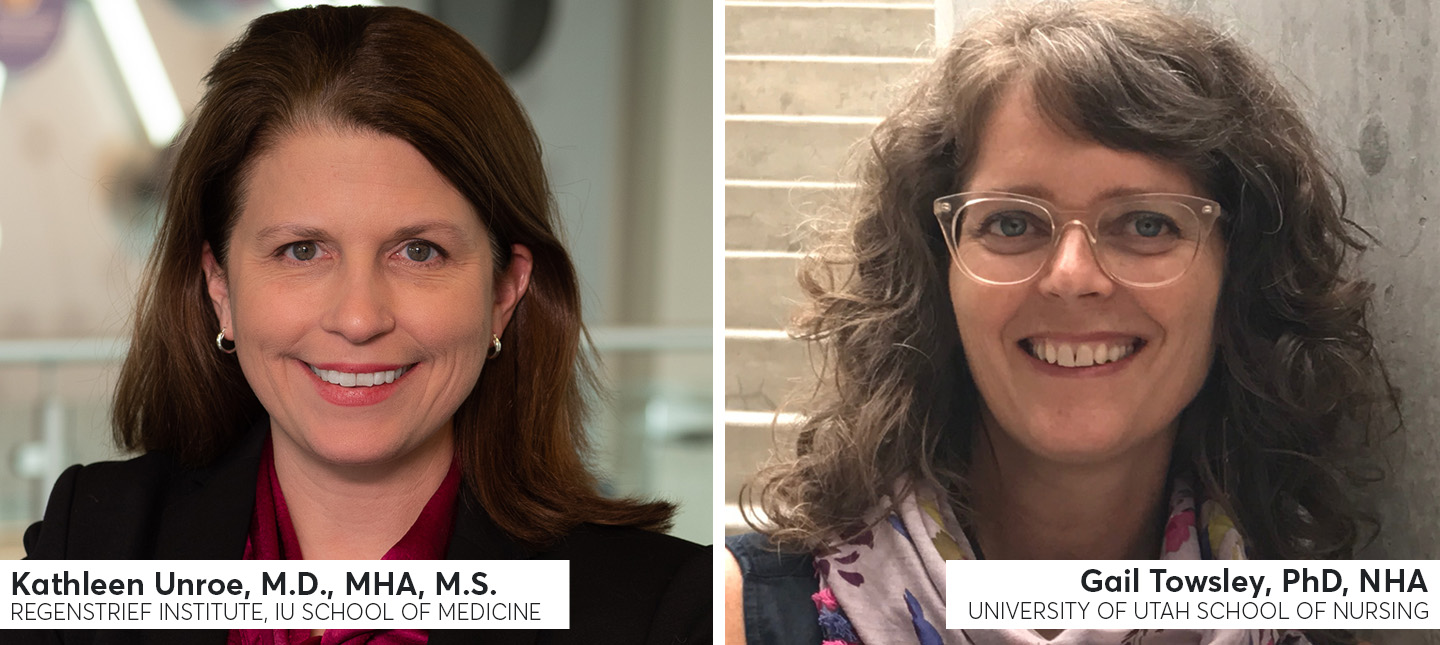No one associated with nursing homes – as residents or their families, friends, staff or administrators – is unaware of the massive impact of the pandemic on these facilities which provide essential services to a growing number of older adults, many living with cognitive impairment.
In “Learning from the experience of dementia care for nursing home residents during the pandemic,” an editorial published in the Journal of the American Geriatrics Society, Regenstrief Institute and Indiana University School of Medicine researcher-clinician Kathleen Unroe, M.D., MHA, M.S., and University of Utah College of Nursing faculty member Gail Towsley, PhD, NHA, focus on the continual need to integrate quality dementia-specific care into nursing homes.
“Nursing home leaders [during the pandemic] had to balance competing demands including pressures to off-load hospitals by admitting new patients, as well as responsibilities to protect staff and established residents. The constant assessment of risks versus benefits often resulted in trade-offs between safety (or at least, what was believed at the time provided safety) and quality of life,” the editorial notes.
The authors highlight the uncertainties and stressors faced by extended care providers and those for whom they care, focusing on challenges including resident social isolation, staff recruitment, training and retention as well as the troublesome conflict between best practice infection control and best practice dementia care.
“A majority of people who receive care in nursing homes have cognitive impairment,” said Dr. Unroe. “High-quality care for people with cognitive impairment, including people with a diagnosis of dementia, should be person-centered, which requires knowing a person’s goals for their care and their treatment preferences and making sure that those goals and preferences are documented and then met, including for those with limited ability or even no ability to participate in these discussions anymore.
“People in nursing homes are, by the nature of living in a nursing home, often isolated from their community, their prior neighborhoods and contacts as well as their families,” she added. “We need to take extra steps to make sure that we maintain these important connections, making it as easy as possible for people to come and participate in life in the nursing home and for people to be able to leave the facility and participate in life in their neighborhoods and with their families.”
According to Dr. Unroe, the pandemic highlighted:
- Need for dementia care specific staff training
- Value of telehealth communication
- Importance of expansion of family’s role in nursing home care
In 2022, the National Academies of Sciences, Engineering and Medicine issued “The National Imperative to Improve Nursing Home Quality,” which noted “the devastating impact of the COVID-19 pandemic on nursing home residents and staff has renewed attention to the long-standing weaknesses that impede the provision of high-quality nursing home care.” The report calls for the Centers for Medicare and Medicaid Services (CMS) and states to improve oversight of nursing homes to avoid a repeat of failures that occurred during the COVID-19 pandemic.
Highlighting the importance of exploration of opportunities to “coalesce around solutions” to solve persistent challenges in nursing home settings, Drs. Unroe and Towsley conclude, “While the pandemic included lessons we wish we did not have to experience, we have an opportunity to shift our practices and re-focus on high quality dementia care.”
Kathleen Unroe, M.D., MHA, M.S.
In addition to being a research scientist with the Indiana University Center for Aging Research at Regenstrief Institute, Kathleen Unroe, M.D., MHA, M.S., is an associate professor of medicine at Indiana University School of Medicine and a practicing geriatrician. Dr. Unroe is the founder and an executive officer of Probari, a healthcare start-up supporting nursing home care.









